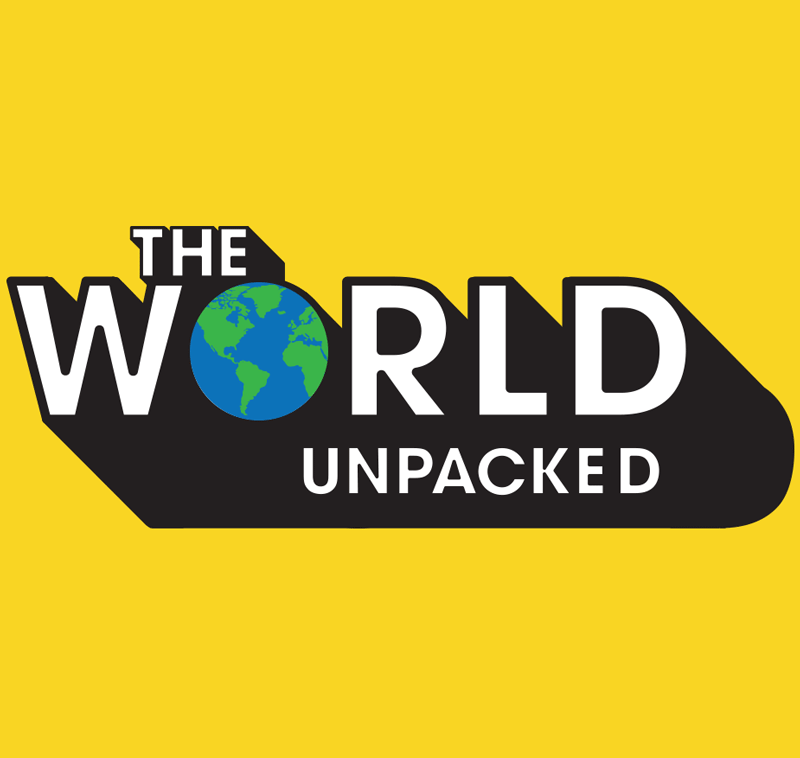If there is to be any hope of interrupting the failing trend of diversity & inclusion efforts in the nuclear community, a radical shift toward proactivity and specificity is required.
Read MoreFor many Black scientists and researchers, working in academia means weathering systemic bias, micro-aggressions, and isolation. Dr. Shardé M. Davis, a communications researcher at the University of Connecticut, created #BlackInTheIvory as a platform for discussing the experiences of Black academics.
On December 3, 2020, Dr. Davis joined Dr. Mareena Robinson Snowden, a nuclear engineer at the Johns Hopkins University Applied Physics Lab, and Dr. James Mickens, a computer scientist at Harvard University, to examine academia's role in perpetuating institutional racism and efforts to change those systems. Tanya Ballard Brown, an editor at National Public Radio (NPR), moderated.
Read MoreThe recent killings of unarmed Black Americans and the ensuing protests have yet again highlighted the racial injustices and structural inequalities that remain a major part of life in the United States. Institutions across the U.S. nuclear community—including the Project on Managing the Atom—have issued statements condemning systemic racism and recognizing the need to counter racial injustices. To further these discussions, this panel focused on often-overlooked issues of racial inequalities in the nuclear field. Contributors to the panel discussed race in the context of global nuclear governance, the nuclear disarmament movement, and nuclear weapons testing.
Read MoreThe Ploughshares Fund Women’s Initiative held an energizing conversation via Zoom, Responsible Disruption: Women’s Participation, Perspectives and Power, Tuesday, October 20. Guest speakers were: Ambassador Laura Holgate, Mareena Robinson Snowden and Sanam Naraghi Anderlini, and the event was moderated by Ploughshares Fund president, Emma Belcher. We explored how responsible disruption leads to changing the world for the better – and how to do so in a way that is fair, responsible, safe and trustworthy.
Read MoreOn the third episode of the PONI Pathbreakers series, former Sandia National Laboratories Director Jill Hruby and Dr. Mareena Robinson Snowden, Senior Engineer in the National Security Analysis Department at the Johns Hopkins Applied Physics Lab talk about being pioneers in their careers, nuclear proliferation, and great power competition.
Read MoreOn this week's episode she talks about her life and career after that level of notoriety, especially when the ink had barely dried on her doctoral degree and she was entering the workforce. Mareena shares how she is charting her career path by gaining experience while exploring her interests, which she calls her 'unconventional post-doc'. She puts us on game (hence the episode name), sharing sage advice and insight on life post-grad.
Read MoreAlthough U.S.-North Korean talks have stalled, North Korean leader Kim Jong Un has abided by an apparent moratorium on nuclear testing, keeping alive hopes that an agreement can be reached to denuclearize North Korea. Implementing such an agreement with North Korea, if one can be negotiated, would constitute an unprecedented challenge for the international community.
Verifying such an agreement would require building a monitoring regime that goes well beyond traditional international safeguards and bilateral arms control approaches while accommodating legitimate North Korean concerns over intrusiveness, which would practically preclude “anytime, anywhere” inspections. Creativity will be needed to design a verification scheme to which the United States and North Korea could agree and that could be implemented in affordable and practical ways and that politicians would deem credible.
Read MoreThis summer I had the opportunity to speak to current SSGF fellows about my experience post graduate school. My goal was to share with them my thought process, missteps and strategies to defining my career path during the critical first few years after the PhD. Thank you to the DOE NNSA SSGF for not only inviting me to speak, but for generously supporting my PhD work.
Read MoreAs women of color take the lead in national security, how are they changing the conversation and the culture of the foreign policy community? Jen Psaki of the Carnegie Endowment for International Peace talks to Mareena Robinson Snowden and Bonnie Jenkins about their careers in nuclear policy, how more diverse voices lead to better policy outcomes, and how the culture of the national security community must grow to better foster inclusion and representation.
Read MoreNuclear science and engineering alumna Mareena Robinson Snowden PhD '17 devises new solutions for problems of arms control and proliferation.
Read More“We are presenting our Next Generation Award to Dr. Mareena Robinson Snowden who, in 2017, became the first African American woman to earn a PhD in Nuclear Engineering from MIT and whose inspirational story has been featured on national television and radio, and in print media. She is currently the Stanton Nuclear Security Fellow at the Carnegie Endowment for International Peace. Both are wonderful examples of the contributions that women in STEM fields have made and will continue to make to the greater good.”
Read MoreI had the pleasure to sit down with Carnegie Comms Director Jenn Psaki to discuss the 2019 Carnegie Nuclear Policy Conference, and specifics about the DPRK denuclearization talks.
Read MoreLast month, I had the honor of participating on a panel about the history and future of nuclear weapons and nuclear weapons policy, hosted by the Women’s Action for New Directions. Alongside my fellow participants - Beatrice Fihn, Director of the International Campaign to Abolish Nuclear Weapons & Ambassador Bonnie Jenkins, former coordinator for threat reduction programs in the Bureau of International Security and Nonproliferation - we discussed the changing geopolitical landscape, the decline of international cooperation on arms reduction and other tools of strategic stability, and our views on the best paths forward with respect to US and international nuclear weapons policy.
Read MoreHow can we encourage an atmosphere of collaboration and responsible disruption in the nuclear security field? By ensuring that all feel empowered to contribute. In my mind, the first barrier to that empowerment is whether or not you see yourself and your ideas as legitimate. Given that legitimacy is in many ways a product of public opinion, part of the mission is to influence the way the public considers who is a legitimate voice on nuclear issues and what ideas are both credible and justified.
Read MoreIn honor of the life and work of the Dr. Martin Luther King Jr, I returned to Idaho Falls to share my thoughts on the idea of dreaming big.
Read MoreThe Diversity in National Security Network and New America are pleased to honor the contributions of 35 Black American experts in U.S. national security and foreign policy. The list features experts currently serving in government, think tanks, academia, non-governmental organizations, and the media. Selection is based on excellence and leadership; their current work in national security or foreign policy; and their contributions to their issues of expertise through thought leadership.
Read MoreIt's a very exciting time professionally to be engaged in the conversation because of the opportunities to shape our nuclear future, regardless of the side you are on - nonproliferation, arms control or modernization.
Read MoreYou know those surreal moments where you get to meet people that you’re a huge fan of? Well that happened to me when I was invited to be interviewed for the WKYS Angie in the AM morning show.
Read MoreI am so fortunate to have been given the opportunity to thank the university that has given me so much. On August 3rd, I returned to the highest of seven hills to acknowledge the role FAMU played in my own journey and let the graduates know how uniquely prepared they are to excel in this new stage. As the keynote speaker for the 2018 Florida A&M University Commencement, I came to affirm the best that FAMU has given them - a strong identity based in the facts of black excellence, training that qualifies them to solve the world’s biggest problems, and critical thinking skills that will allow them to prioritize the future in a culture that increasingly is preoccupied with the now.
Read More


















